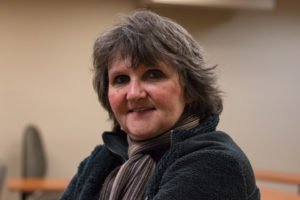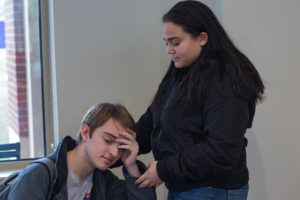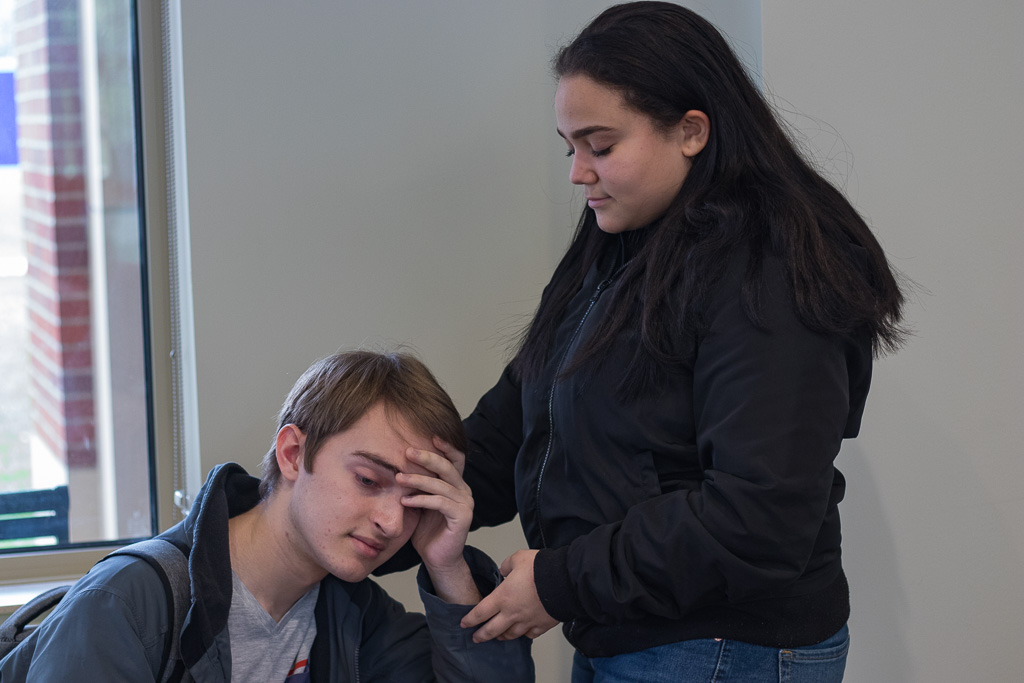No one lives forever. No one likes to think about it, but it’s true. Whether hit by a bus, death by disease, or maybe something slightly more legendary like a vending machine accident, it happens to everyone. And that’s really hard to think about sometimes.
Aside from all of the formal stuff, like writing a will and picking your burial spot, the fact of death is what gets the best of us. We often don’t know how to deal with it.
There’s this stigma that staying positive is the key to life: happy thoughts and smiles will get anyone through anything. But really, that’s outrageous.
Janette McDonald, who teaches a class called Dying, Death and Bereavement (which deals with cultural customs, different kinds of traditions and rituals, etc.) says that being gentle is better and more practical than trying to stay positive.
“What I encourage people to do is to be gentle, to be gentle with themselves and to be gentle with others,” McDonald said. “We think, ‘Oh, it’s important to be positive.’ I think that’s a misunderstanding … you shouldn’t be positive when somebody dies. But there’s a way to handle it happily.”
Positivity in death is almost impossible in some ways.
“Let’s say, for instance, your dad dies; you can’t be positive. That can be very harmful in some ways,” McDonald said. “When it comes to the loss of a loved one, it’s incredibly difficult to make it something positive — and it’s okay to grieve.”
In fact, telling someone to “be positive” when they are grieving can often do more harm than good.
“You create a potential harm when you tell people to stay positive and then they can’t, and then they begin to feel bad,” she said. “It’s perfectly all right to show emotion.”
Strong support systems are key to staying strong through the grieving process. Friends, family, clergy, counselors, and so on can all be incredibly beneficial when it comes to these things.
“You can’t talk to a lot of people about it; people just don’t understand,” McDonald said. “You figure out who those safe people are.”
Acceptance of your own death can be difficult as well. In McDonald’s class, she asks her students to prepare their own celebration of life, or funeral. This gets them to begin thinking about things such as burial, caskets, and organ donations.
“If you don’t want to talk about it with somebody, have it written down somewhere … have a written will,” she said.
McDonald explained that college students tend not to think about things like their own mortality very often unless they have been through family deaths or suffer from a chronic illness.

But the fact of the matter is that death is rarely planned, and tragedies hit constantly. There is no way to be completely ready, but there is a way to be aware of what’s coming.
“Being aware … that we are here for such a short amount of time and to recognize how short and fragile life is [is important],” McDonald said.


